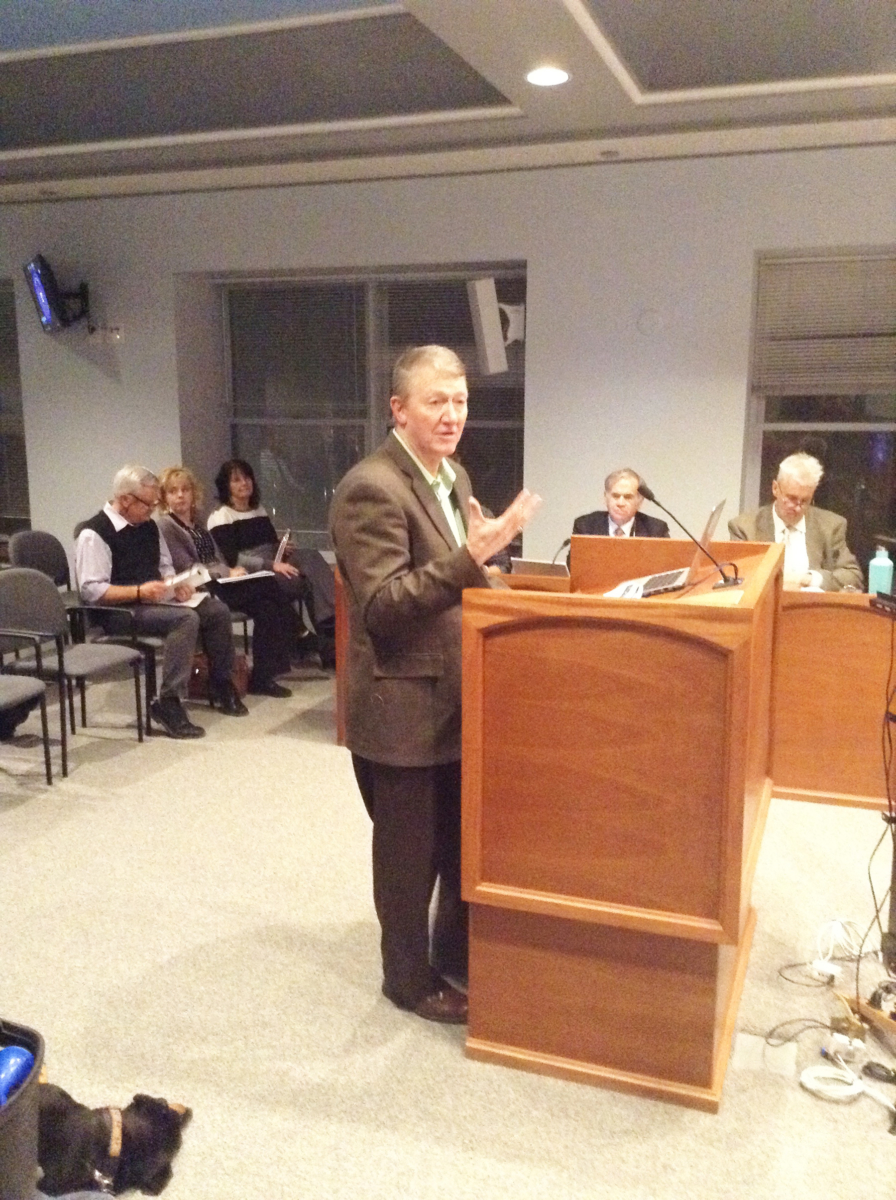Talks marijuana tax, ADA settlement, and more
by Bill Knowles
TRINIDAD — The Trinidad City Council received an update from Rick Rigel, the general manager of the Arkansas River Power Authority (ARPA). Rigel looked mainly at the costs and earnings of the power authority.
He told the council that ARPA is attempting to refund all of the authority’s debt. Calling it a big deal for ARPA, he said it is something they’ve been planning on doing for about three years. “We had to get some things out of the way first,” Rigel said. “Primarily the litigation, which was settled in November with the city of Lamar.”
Once the litigation was behind them, they started on the refunding process. They’ve hired a bond counsel from Chapman Cutler, which is headquartered in Chicago with offices in major cities in the U.S. and a public finance team located in Salt Lake City. They’ve also hired Goldman Sachs as the underwriter.
The strategy is to refund the bonds issued in 2003, 2006, and 2007, which ARPA would like to close in early May 2018. Once the bonds are refunded ARPA will be able to pay Lamar the settlement the courts have ordered. This will help ARPA refund its existing debt. By the end of January the authority was be able to save around $700,000 in annual savings, with a net present value of around $11 million. This could reduce costs to around 3 cents to 3.5 cents per kilowatt-hour. However, this won’t translate into any kind of sustainable rate decrease.
Marijuana tax
Marijuana sales tax revenue and how it is to be put to use in 2018 was also discussed. District Attorney Henry Solano approached the city council requesting $25,000 in additional funding from the tax revenue. Since his office won’t see any revenue from the half-cent sales tax passed by voters last November until March, his office will need the extra funding to proceed with prosecutions. Most of the felony cases (about 80%) prosecuted in the Third Judicial District originate in the City of Trinidad and Las Animas County.
His office is also seeing an increase in domestic violence cases, and Solano voiced the concern that those cases could escalate into more serious crime such as homicide.
The Southern Colorado Repertory Theatre also sought funding from the marijuana sales tax revenue. They will need funding for the next five years issued in decreasing amounts until 2023, when they will be self sustaining.
City settles with Hamer
In actions taken, the city council voted 7-0 to approve the settlement agreement with the U.S. Department of Justice under the Americans with Disabilities Act. The specifics of either the complaint or the settlement, by court order, cannot be released. However, Stephen Hamer spoke to the city council during the public comment time allotted on the agenda.
Hamer thanked the city council and the City of Trinidad for approving the settlement and for the changes that are coming. “I know the city fought the settlement tooth and nail and that was very disappointing. It drug out for five years,” Hamer said. Hamer filed the lawsuit April 29, 2014. “I’ve seen changes and I give credit where credit is due and I thank you.”
A second reading of an ordinance that rezoned a parcel of undeveloped property at the corner of Desperado Drive and Moore’s Canyon Road was approved with a 6-0 vote, while council member Rusty Goodall recused himself. Goodall had heard and worked on the rezoning while he was a member of the city’s planning and zoning commission.
City to support the bike trail
The city took action on a Memorandum of Understanding between the city and Las Animas County for funding of the Transportation Alternatives Program Grant. The MOU will bring the city into a co-sponsorship with Huerfano County for the Southern Mountain Loop of the Colorado Front Range Trail Study.
The original proposal was between Las Animas County and Huerfano County until Las Animas County fell into hard financial times. Trinidad was asked to pick up Las Animas County’s share of $37,500 for the engineering feasibility study on the proposed 100-mile bike trail. The cost of the study and the idea that the county was unable to put up their part of the funding this early in 2018 drew the ire of some of the city council members.
Walsenburg is another member of the study and they will put in $37,500 also. When completed, the bike trail will run from Trinidad to Walsenburg, nearly 100 miles in length running parallel to Highway 12. The funding is in the transportation bill, which calls for CDOT and the federal government putting up $800,000.
The council approved the funds on a 6-1 vote with council member Joe Bonato casting the no vote.
The meeting adjourned at 9:11 pm.





